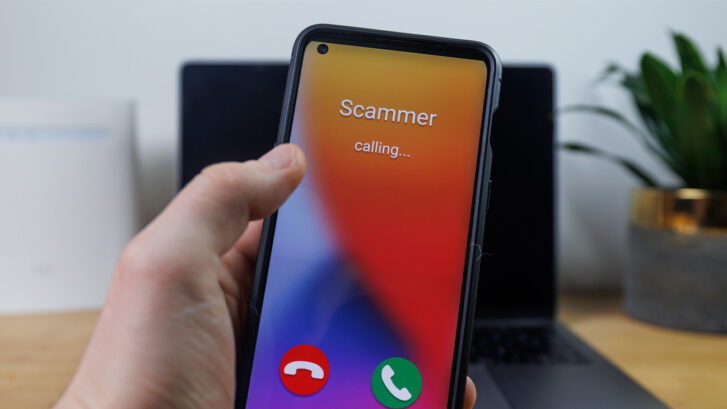Impersonation Scam Calls: How to Recognize and Protect Yourself
Almost everyone you know has a smartphone today, which means you’re not the only one out there getting a ridiculous amount of calls from bad actors trying to impersonate someone else. Navigating the amount of scam calls we get on a daily level is bad enough, especially when they come from someone we might be doing business with. Impersonation scam calls have become a significant threat to our personal and financial security, impacting smartphone users like a plague. These scams, which often mimic reputable brands, can be sophisticated and convincing. Understanding these scams and knowing how to protect yourself is crucial. This article will delve into common impersonation scams, highlight their tactics, and offer tips on how to communicate safely.
What Are Impersonation Scam Calls?
Impersonation scam calls are fraudulent calls where scammers pose as representatives from well-known brands, companies, or government agencies. Their goal is to trick you into providing sensitive information, such as passwords, social security numbers, or financial details. These scams exploit the trust that people have in reputable organizations, making them particularly dangerous.
Common Types of Impersonation Scam Calls
1. Interest Rate Scam (Capital One)
Scammers claim to represent Capital One, offering to lower your interest rates. They ask for your credit card details and other personal information, which they use for fraudulent purposes.
More on the Capital One Interest Scam
2. Password Reset Scam (Microsoft)
Posing as Microsoft support, these scammers tell you that your account has been compromised and needs a password reset. They then guide you through a fake process to capture your new password and other credentials.
More on the Microsoft Password Reset Scam
3. Phone Number Change Scam (PayPal)
In this scam, fraudsters pretend to be PayPal representatives notifying you of a phone number change request. They then ask for your account details to “verify” your identity.
More on the PayPal Phone Number Change Scam
4. Password Change Scam (Venmo)
Similar to the PayPal scam, this involves scammers impersonating Venmo support to trick you into changing your password, thereby gaining access to your account.
More on the Venmo Password Change Scam
5. Utilities Fraud Scam (Southern California Edison, Consumer Energy)
Scammers impersonate utility companies, claiming that your service will be disconnected unless you pay an overdue bill immediately, usually via a non-traditional payment method like gift cards.
More on the Southern California Edison Scam
6. Debt Elimination Scam (Visa, Mastercard)
These calls offer to eliminate your credit card debt and ask for your card information to “process” the service. Instead, they steal your details for fraudulent transactions.
More on the Consumer Energy Collections Scam
7. Business Listing Fraud Scam (Google)
Scammers claim to be from Google, stating that your business listing needs urgent updates to remain visible in search results. They then charge you for services that Google provides for free.
More on the Debt Elimination Scam
8. Amazon Network Verification Scam (Amazon)
Impersonating Amazon, these callers inform you of suspicious activity on your account and request verification details to “secure” it, which they then use to access your account.
More on the Google Business Listing Scam
How to Recognize Impersonation Scam Calls
Red Flags to Watch For:
- Urgency and Pressure: Scammers often create a sense of urgency, pressuring you to act quickly without thinking.
- Unusual Payment Methods: Requests for payment via gift cards, wire transfers, or other non-traditional methods are a major red flag.
- Unsolicited Requests: Be wary of unsolicited calls asking for personal or financial information.
- Too Good to Be True: Offers that seem too good to be true, such as debt elimination or low interest rates, are likely scams.
- Caller ID Spoofing: Scammers can fake the caller ID to appear as if they are calling from a legitimate company.
How to Protect Yourself
Best Practices:
- Verify the Caller: If you receive a suspicious call, hang up and contact the company directly using a verified phone number from their official website.
- Do Not Share Personal Information: Never provide personal or financial information over the phone unless you are certain of the caller’s identity.
- Use Call Blocking: Utilize call blocking services to prevent known scam numbers from reaching you.
- Report Scams: Report any scam calls to the Federal Trade Commission (FTC) or your local consumer protection agency.
- Stay Informed: Keep up-to-date with the latest scam tactics and share this information with friends and family.
Find out how the scammers got your number
See where your phone number, address, or other personal info is exposed – in seconds. Remove your personal information from data broker sites, reducing the likelihood of you falling victim to fraud, so you can take control of your privacy.
See where your phone number, address, or other info is exposed – in seconds.
🔒 Your info will remain private and secure.
Communicate Safely with YouMail
At YouMail, we are committed to helping you communicate safely. Our services include call blocking, voicemail protection, and a second phone line to separate personal and business communications. By using YouMail, you can shield yourself from scam calls and ensure that your communications remain secure.
Why Choose YouMail:
- Trusted by Millions: Over 13 million Americans rely on YouMail for safe communication.
- Comprehensive Protection: We offer free call blocking and advanced call screening to stop 100% of spam calls.
- Continuous Updates: We constantly update our systems to adapt to new scam tactics, ensuring your protection.
Conclusion
Impersonation scam calls are a serious threat, but by staying informed and using the right tools, you can protect yourself and your loved ones. Remember to always verify the caller, avoid sharing sensitive information, and use services like YouMail to enhance your communication safety. Together, we can stay one step ahead of the scammers and keep our information secure.
For more detailed information and the latest updates on scam calls, visit the YouMail blog.





